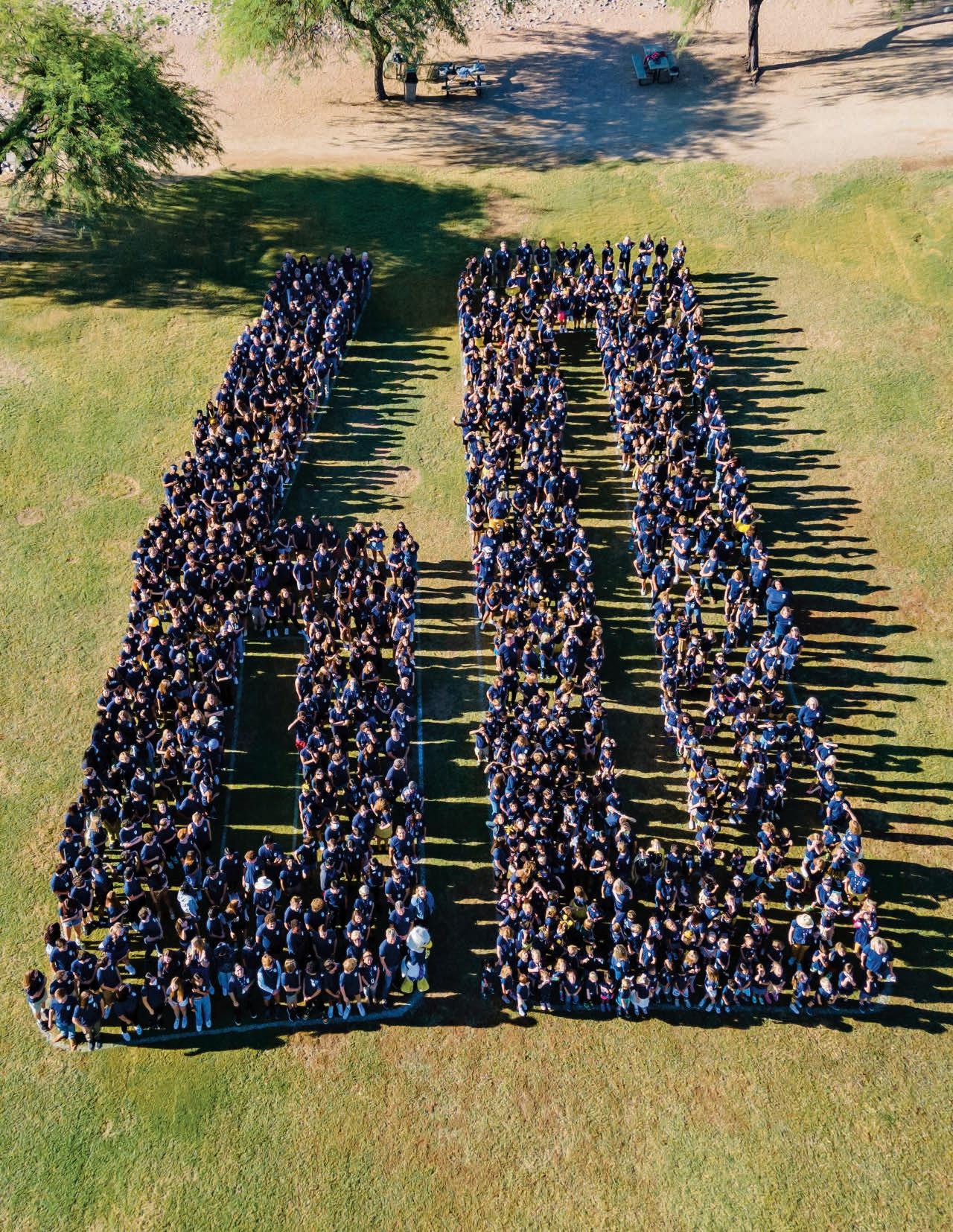
5 minute read
Past & Present Celebrating 60 Years
Past & Present
Celebrating 60 Years
It was in the fall of 1960 when Mae Sue Talley and her family decided to build a “really good school in this desert and friendly town that we had fallen in love with and wanted to call home.” They needed a place to send their children instead of sending them back east.

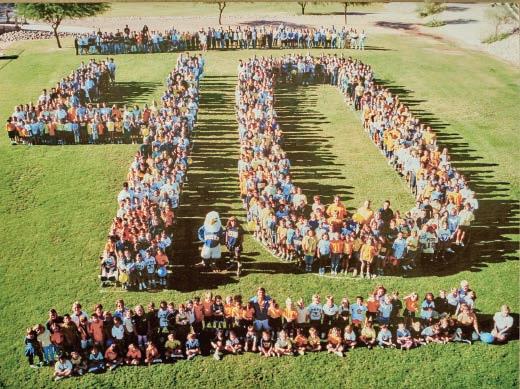
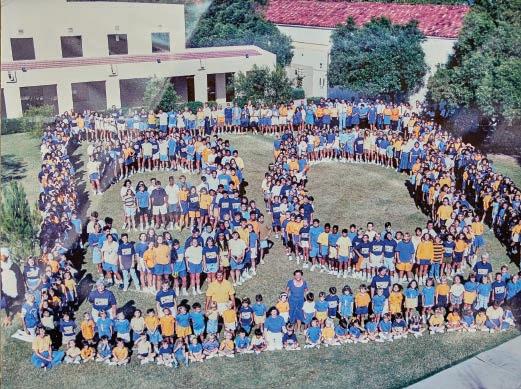

In 1960, a group of pioneers led by Mr. Franz Talley and his wife, Dr. Mae Sue Talley, agreed to found a nonsectarian, nonprofit, college preparatory day school based on an eastern school model that would soon become—in their minds—the “Exeter of the West.” The Talley Academy, which was our School’s original name, was soon changed to PCDS, as it was thought that a public campaign for capital and endowment funds wouldn’t succeed under its original name.
The location of PCDS in the 1960s was much more remote and rural than it is today. There were riding stables close by and our nearest neighbors’ yards could not be touched by a baseball home run. The geographical setting—the desert landscape with majestic Camelback Mountain as its backdrop and the wash running through the center of the campus— played an important role back then, just as it does today. Because of the Cudia Wash, most of our property is in the 100-year flood plain. This dictated the location of the early buildings and continues to play a role in the growth and development of our School today.
Thankfully our School’s founders and visionaries believed in the importance of laying the groundwork for a “really good school” in the Southwest. Because of all of their efforts, and the efforts of the visionaries to follow them, PCDS currently stands tall as the top school in the Southwest and beyond.
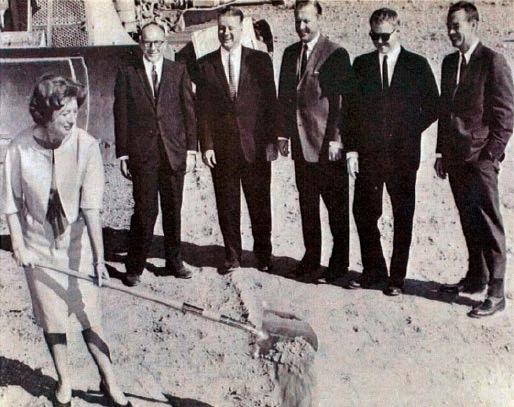
Mae Sue Talley’s dream came true in 1960 when she scooped the first shovelful of dirt at the PCDS groundbreaking.
Enrollment Grades Facilities
School Colors School Dress
Sports Teams
Graduating Seniors Annual Fund Mascot THEN—1960s
93
3 through 9
16 classrooms, 2 science labs, a small library, art room, and study hall
Royal blue and white
No T-shirts or Levis. Girls must wear skirts or dresses
1964: Football, wrestling, boys’ basketball, baseball
1965: 16
1964: 60% parent participation
Thunder the Eagle NOW—2022
750
Pre-kindergarten through 12
80 classrooms, 9 science labs, 7 art studios, 3 libraries, 3 computer labs, 4 music rooms, 2 pools, 2 auditoriums, and 2 gymnasiums
Navy blue and gold
No bare feet, clothes with too many holes or stains, or shirts with inappropriate slogans
12 sports, including track and field, flag football, golf, swimming/diving, cheer, volleyball, soccer, cross country, tennis, softball, baseball, and basketball
2021: 75
80% parent participation
Thunder the Eagle
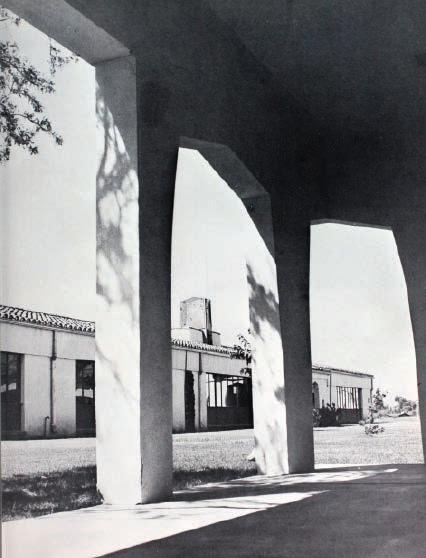
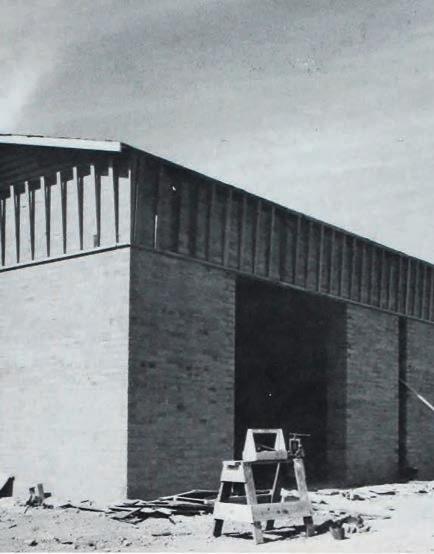

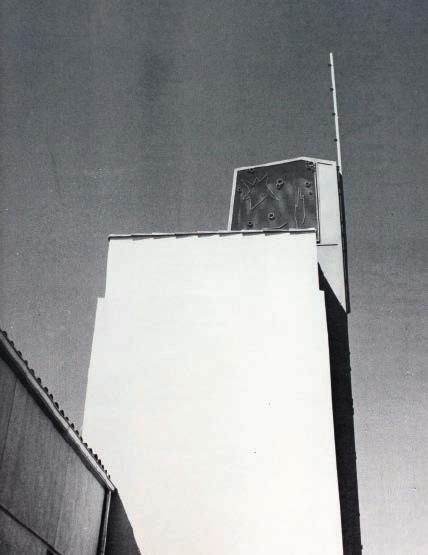
Advisory Trustee (and early visionary) Gay Wray P’77, ’80, ’84
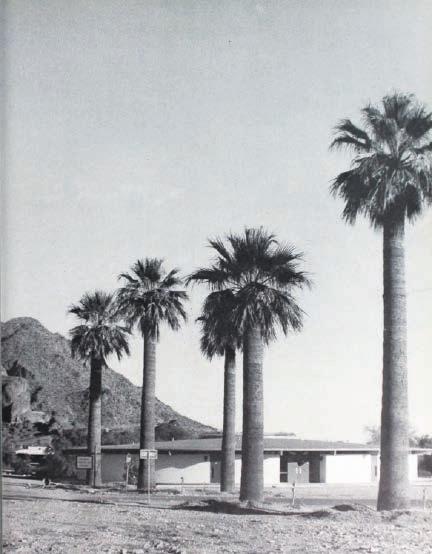

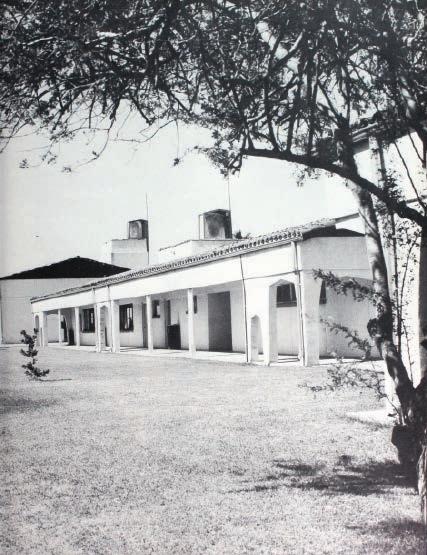
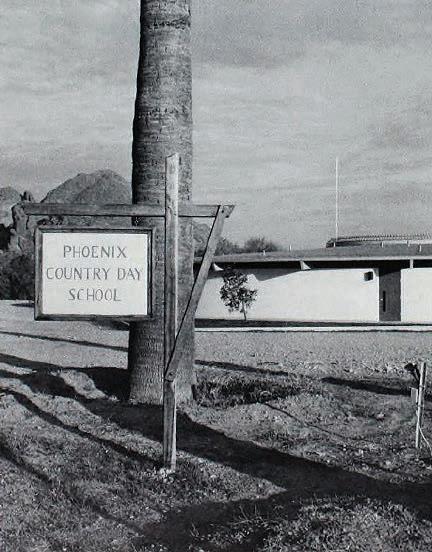
HEADS OF SCHOOL OVER THE YEARS
Charles Shepard Robert W. Herbert John I. Yellott Robert Pierce Jr.
1961 1962 1963 1964 1965 1966 1967 1968 1969 1970 1971 1972 1973 1974 1975
Mae Sue Talley Cornelius Dutcher Rex Allison Peter Wainwright
Larry Laughlin Frank C. Rand III Herbert J. Louis
BOARD PRESIDENTS OVER THE YEARS
The Talley family purchased 20.44 acres at $5K/acre, donated that land to PCDS, and underwrote most of the initial operating and construction costs
In 1961, PCDS was founded by the Talleys with help from Rex Allison, Cornelius Dutcher, A.T. LaPrade, A.B. Robbs, Jr., and Guy Sullivan. The doors were opened to 93 students in grades 3-9
Did You Know?
In the 1960s, Headmaster John Yellott explained the reasoning behind the Phoenix Country Day School name choice at that time:
Phoenix—our School was intended to serve the entire metropolitan Phoenix area Country—to denote the rural atmosphere of the campus at that time, which provided space for playgrounds and athletic fields Day School—because its aim was to provide excellent college preparation for children who could continue to enjoy the benefits of home and family life
First Blue & Gold in 1967
In 1968, the Founders/Board of Trustees helped to purchase the additional 20 acres we have today Burch Hall was originally built to house our School’s administration and to serve as an auditorium and cafeteria
HEADS OF SCHOOL OVER THE YEARS
< Galen Brewster
1991 1992 1993 1994 1995 1996 1997 1998 1999 2000 2001 2002 2003 2004 2005 2006
< Bennett Dorrance Donald Loback Susan Bansak Garth Wieger Jonah Shacknai
BOARD PRESIDENTS OVER THE YEARS
Joel Monell Margaret J. Madden >
1976 1977 1978 1979 1980 1981 1982 1983 1984 1985 1986 1987 1988 1989 1990
Bert Getz Gay Wray Jack Blumenstein George Leckie Robert Matia >
PCDS’s endowment fund was created in the early 1970s by Dr. Herbert J. Louis (Tim) with a generous gift
In July 1973, athletic facilities were built including 4 tennis courts and the John I. Yellott Aquacenter
In 1973, the first nurse’s office and a student lounge were constructed In 1981, a major flood forced a relocation of the US complex to higher ground
In 1986, the gym (now Alumni Gym) and music building were built
Project Excellence was established in 1987 In 1991, the current Ann Hays Daley Bridge replaced the Lincoln Bridge that was built in 1972
Our School marked its 30th birthday by burning its mortgage papers by then Head of School Peg Madden and then Board President Bennett Dorrance
In 2003, Dorrance Auditorium was built
Geoffrey Campbell Lee Pierson Andrew Rodin
2007 2008 2009 2010 2011 2012 2013 2014 2015 2016 2017 2018 2019 2020 2021 2022
Jahm Najafi
Beverly Bradway Larry Clemmensen Jahm Najafi Taylor Burke Tracy Brennan David Lewis










